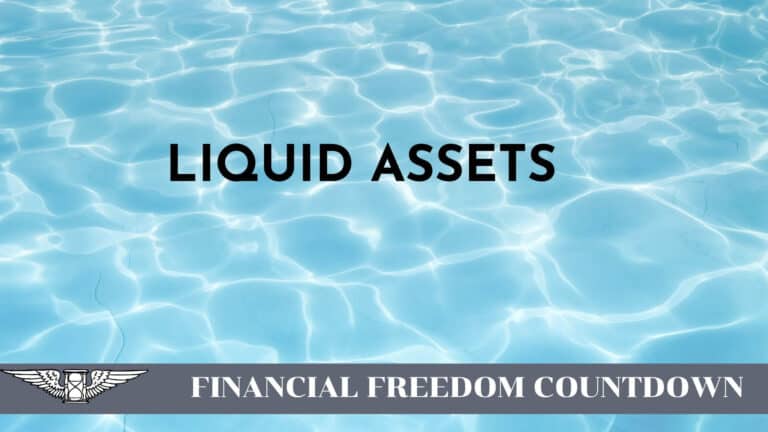Tax Lien Investing: How To Find Tax Lien Properties
Are you interested in learning about an alternative way to invest in real estate that can potentially generate high returns on your investments? Tax lien investing is an increasingly popular investment opportunity for passive income and long-term capital appreciation.
We will discuss the basics of tax lien investing – from how to find properties with tax liens attached to which states offer the best opportunities. We’ll also provide some advice on how investors can make sound decisions when selecting suitable investments and maximizing their return potential.
What Is a Tax Lien
A tax lien is a legal claim on the property of individuals or businesses that haven’t paid their taxes owed to the government.
The government will attach a tax lien to the property to ensure it eventually gets its money. If a lien is attached to a property, the property can only be sold or refinanced once the taxes are paid and the lien is removed.
When the property is sold, the government will get whatever it is owed, ensuring that the taxpayers are made whole by tax sale and that the tax debt is ultimately paid.
A tax lien usually comes after an extended period of property tax delinquency. In this instance, a person or business doesn’t pay the taxes owed on a property for some time. Eventually – and usually only after a protracted court battle – the government will seek to attach a tax lien on the property. Property tax liens are the most common tax liens, but they are not the only ones.
The tax liens can make buying a property more complicated. Still, they can also provide a lucrative source of real estate income to interested individuals who can manage the additional complications that come with tax lien investing. Due to the popularity of tax lien investing, auctions are held to sell tax liens, which may result in bidding wars.
A tax lien certificate is a specific certificate – filed by the government – which notes how much is owed on a property and what government unit is owed the money. This certificate is a formal legal document that can enable an investor to determine precisely how much money is owed, including interest and penalties. Tax lien certificates are crucial documentation for the winning bidder necessary for managing tax lien investments and ensuring that delinquent taxes are paid.
Remembering that a tax lien can be paid before a property is sold is essential. Indeed, a property tax lien is not the be-all, end-all of any unpaid property taxes. An original property owner can resolve any tax lien by paying off the delinquent taxes before the property is sold. In many cases, doing so may help make it easier to dispose of property, as most investors prefer a “clean” property with no tax liens.
What Is Tax Lien Investing
Tax lien investing – or tax lien certificate investing – is a potentially lucrative form of investing that involves buying a tax lien certificate. It’s an interesting potential way of money, but you have to be highly cautious in engaging in this area, or you could be stuck with a massive and unpaid tax lien certificate.
Currently, 29 states and Washington, D.C., allow tax lien certificates to be sold to private investors or firms. These can be sold as part of a bidding process, usually a tax lien auction. A tax lien auction is a specific auction, traditionally managed by the government in conjunction with third parties, in which a property tax lien is auctioned off. A tax lien auction will enable a potential investor to purchase tax liens, then manage the collection of those liens.
Tax lien auctions are a cornerstone of tax lien investing. If this is an area that you want to get more involved in, you will have to make sure to develop a system to watch for tax lien auctions. As you would expect, investors bid against each other and usually have to be able to immediately come up with the money to pay for the tax lien.
Once a tax lien certificate is yours, you can collect the money plus interest. The local government usually sets the interest you can charge, preventing you from charging excessive rates. Each state has a different law surrounding the interest and fees you can select, so you must do your homework and understand what interest you can charge.
Once you pay the balance of the property taxes, the tax lien certificate is yours, and you will manage foreclosure proceedings against the residential or commercial property owners. Managing this process requires a level of expertise. You will need to work with legal and financial experts who have experience managing foreclosure and can ultimately help you obtain access to the property. Depending on the situation, you may also need to work with a still-present property owner. Doing so obviously requires a degree of understanding and finesse.
How To Make Money Buying Tax Liens
- When someone buys a property tax lien, they usually have to pay the total amount owed to the government immediately. So, you are buying the debt and the right to collect on the debt from the government.
- After paying the government, the lien holder gets the right to collect the debt from the property owner, including any interest that varies from state to state. Some states impose caps on the interest rate the investor can charge.
- Usually, the property owner can fully pay off the lien over some time. The investor makes money on the interest charged.
- The investor can foreclose on the property if the owner cannot pay. An investor can sell the property to recover their investment with profit. The deadline to initiate foreclosure on a tax lien may vary depending on the state. You may forfeit your right to recover your investment if you don’t meet this deadline.
How Can I Buy a Tax Lien Property
Property tax liens can be bought by investors through auctions, just like actual properties.
- If you want to buy a tax lien, first decide whether to hold a tax lien on a residential or commercial property.
- Contact your city or county treasurer’s office to learn about the upcoming auction’s date, location, and procedure. They can provide details on where to get a list of liens that will be auctioned and the auction’s regulations, such as registration prerequisites, acceptable payment methods, and other essential information.
- Research the list of tax lien properties in advance. Based on your research, you should assume other investors will be interested in the same property and be aware of the maximum amount you are willing to pay in a bidding war.
- Tax liens can add to the complication of buying a property. Buying a home with tax liens or tax lien investing requires understanding how this process works. It may also demand that you have access to expert real estate agents and authorities who have ample experience in this area. You must also be prepared to pay the tax bill when purchasing this property.
- If you’re buying a property with tax liens, make sure you factor in the cost of repairs and any additional expenses that may arise once you become the owner. The current occupants know they will be losing the property, so it would be naïve to assume they have maintained the property to living standards.
- Remember that you may also face legal challenges after taking ownership, such as evicting current occupants. To handle these challenges, you may need to work with an attorney, property manager, local police, the court system, or all of the above.
- Sometimes, the property lien may exceed its paid value after considering all the rehab and eviction costs. Besides, other liens may prevent the bidder from assuming property ownership.
Potential Benefits of Tax Lien Investing
For individuals looking for creative ways of investing money and those with the time, expertise, and assistance to manage a foreclosure process, investing in tax liens may prove to be a highly lucrative area.
Lower Capital Investment
Tax lien certificate investing requires a lower capital than other real estate investing forms. Adding this asset class to your portfolio with as little as a few hundred dollars is possible.
High Interest Payment
Depending on the state in question, you may get a very high return on your investment. The rate of return ultimately depends on the interest rate you can charge as the holder of the tax certificate or how quickly you can manage the foreclosure process and remove the property owner from the property. Remember, there can be plenty of speed bumps along the way. However, that’s not to say that you can’t ultimately turn a hefty profit by getting the tax certificate paid.
Stable Returns
Tax lien investing will also come with a stable rate of returns. The certificate will set the interest, and you will know you are getting the tax certificate paid or the property itself. Tax liens can provide a steady income stream for investors seeking investments that pay monthly.
Passive Income
Tax lien investing is one of the best forms of passive income from real estate. While other forms of real estate investing could potentially yield higher returns, tax lien certificate investments are passive.
Asset-Backed
As long as you have done your due diligence on evaluating the property, the tax certificate is backed by a hard asset – the property in question. With non-payment, you can initiate foreclosure proceedings and recover your investment.
Diversified Holdings
The high cost of real estate investing often results in a concentrated portfolio. With tax lien investing, you can wind up owning a property at a fraction of its usual cost. You will then be on the hook to pay all utility bills and property taxes, but this can allow you easy access to the real estate market. Furthermore, you could get a truly diverse portfolio depending on your interest and expertise. By investing in tax liens, you can use someone else’s unpaid property taxes to create a diverse portfolio of real estate holdings.
Networking Opportunities
Tax lien investors are often experienced investors. Even if you do not have a winning bid, you can use it as a networking opportunity, like starting a real estate investment group. Besides learning from their experiences, you might also receive “off-market” deals from skilled investors who no longer wish to be active landlords.
As you build expertise, you’ll know what to invest in, what you should avoid, and how to structure your investments while reducing real estate risk. Experienced investors might also involve you in some real estate syndication deals.
Potential Risks of Tax Lien Investing
There are significant risks to tax lien investing.
Inability To Collect Payments
Chief among them is that there is no guarantee that you will ever be able to collect the money you are owed. Like any other delinquent tax bill, someone may skip town, fail to pay, or declare bankruptcy. This may ultimately leave you in the lurch for collecting the money owed. Yes, you can usually take possession of the property, but that can be complicated and expensive. There is no guarantee that you will be able to turn the property around and quickly profit from it.
Remember that tax liens have an expiration date, known as the redemption period. Any investor will have to wait for this redemption period to expire before gaining access to a property or initiating foreclosure proceedings.
Unfavorable Laws
The laws in most major cities are unjust towards landlords. While NYC and San Francisco are well-known for the difficulties in evicting non-paying tenants, other cities in the San Francisco Bay area are equally challenging. For example, San Leandro has extended the eviction moratorium until February 28, 2024. Oakland and Berkeley have also extended their eviction moratorium deadlines. The difficulty of eviction is one of the primary criteria when picking the best states for real estate investing.
Property Destruction
Even if you complete the eviction, your woes will not be over. Residents of evicted properties often cause a lot of damage to the property when they realize they will no longer be able to occupy it. It would be best to plan for this eventuality when you bid on a delinquent tax lien.
Varied State Laws
Each state has its nuances, and you must be well-versed in local laws before buying tax lien certificates.
For example, in California, purchasing a tax lien is impossible. A tax lien helps the homeowner to pay their overdue taxes, and you earn interest on your investment. However, California can sell tax deeds if the taxes on a property have been delinquent for five years or more or if the owner hasn’t enrolled in the county’s Five Year Payment Plan. Buying a tax deed allows you to become the property owner instead of just holding a lien.
Currently, only 28 states and territories allow for the transfer or assignment of delinquent real estate tax liens. These states are Alabama, Arizona, Colorado, Connecticut, Florida, Georgia, Hawaii, Illinois, Indiana, Iowa, Kentucky, Louisiana, Maryland, Mississippi, Missouri, Montana, Nebraska, New Jersey, New York, Ohio, Oklahoma, Pennsylvania, Puerto Rico, Rhode Island, South Carolina, South Dakota, Tennessee, Texas, U.S. Virgin Islands, Washington D.C., Wyoming.
Highly Competitive
The tax lien world can be highly competitive. You only purchase liens at a public auction. This means you are bidding against others who may have more time and investment in this area, understand the process better, and know the risks. They may be able to outbid you simply because they know what they are doing and have lower profit requirements.
Need Extensive Research
Unlike evaluating a rental property investment, you might not have all the relevant details for tax lien investing. You’ll also need to conduct a comprehensive research about a property before bidding. This means you will need to fully understand the property, including where it is, who owns it, and the potential risks.
The information can be vital in informing not only what you are willing to bid on a tax lien certificate but also if the process is even worth engaging in. In other words: Accessing a tax lien certificate in and of itself isn’t enough. You need access to a vast array of knowledge, which can make tax lien investing much more complex and expensive. There is a higher barrier to entry to tax lien certificate investing than other forms of investing.
Possibility of Litigation
Finally, while you may wind up possessing a property at a fraction of the price, there may be better options. It is always possible that the property itself gets tied in litigation for years, creating a long-term problem for your finances. It is also possible that a property will have more issues than you first realized, thus forcing you to spend significant money to get it up to code.
Challenging Economic Environments
Tax lien certificates tend to come up in difficult economic times. The reason is apparent: Individuals have more difficulty making tax payments during a recession. You may have more of an opportunity to purchase tax lien certificates.
However, this potential positive also comes with significant risk. There is even less of a chance of you collecting your money, and instead, you may wind up inheriting a property you didn’t want to own. Of course, if you are prepared for this eventuality, it can be good because you can make repairs and sell the property at a gain.
Opportunity Costs
When investing in any income-producing asset, evaluating if other investment options provide a better risk/reward or liquidity profile is always a good idea. Since tax liens are available during economic distress, it would be safe to assume stock investments would also offer an attractive entry price. Are you better off investing in low-cost index funds like the S&P 500 than tax liens?
M1 Finance has zero fees, very low minimums, automated investment with automatic rebalancing to invest in Index funds or dividend ETFs.
Alternative Approaches to Tax Lien Investments
Tax lien investing has a high potential upside, but risks also exist. As such, there are alternatives to this form of investing that may be more in line with your ultimate investment goals. Furthermore, they may give you the necessary experience to turn to tax lien investing.
Traditional Real Estate Investing
You could buy rental real estate, flip houses, wholesale homes, invest in it as part of your BRRRR strategy, or sell it. All of this is more traditional and has lower barriers to entry regarding knowledge of resources needed. You can even consider investing in real estate for little to no money. The potential rewards could be better, however, and in many cases, the risk can be more significant: If you lose a house or a property, you could be out hundreds of thousands of dollars and destroy your excellent credit score.
REITs
You can also invest in the stock market without directly owning real estate, like via a REIT. REITs provide relatively high rates of return in the form of dividends, and investing in a solid and stable REIT can ultimately help generate income. Again, REITs are not risk-free, and there is always the possibility of losing money on the investment. Furthermore, there is no question that the potential for returns is less high unless you genuinely strike it rich with an investment or invest a very substantial amount of money.
Institutional Tax Lien Investing
Considering the amount of research and due diligence needed for tax lien investing, it might be a good idea to think about investing in tax liens passively through an institutional investor member of the National Tax Lien Association (NTLA). These institutional investors often buy tax liens in tranches and package them into a fund. The only challenge with this approach is that sometimes the funds are restricted to individuals meeting the accredited investor’s qualifications.
Platforms like Yieldstreet provide investment options in art, structured notes, supply chain financing, tax liens, etc. They also have fixed-income portfolios spread across multiple asset classes with a single investment with low minimums of $2,500.
Is Tax Lien Investing Right for You
Most of the time, buying a new property is relatively straightforward: You find the property you want online or hire a real estate agent and proceed from there.
Sometimes, it is much more complicated, and particular circumstances can make buying a property more difficult. Properties with tax liens tax delinquent properties are unquestionably an excellent example of the complications of buying a new property. Indeed, tax liens can make the purchase of a new property much more complicated and demand that you engage in additional hoops when buying the residential or commercial property of your dreams. Fortunately, despite these complications, taking advantage of a tax lien sale can still enable you to buy a property with delinquent property taxes or other forms of tax liens against it.
It is essential to stay current with all the local laws. Before 2017, tax liens would remain on the previous owner’s credit report. In 2017, all three credit bureaus made changes and no longer reported civil judgments. By April 2018, all tax liens were removed from every credit report.
Buying tax liens require more expertise than the average person has. Tax lien sales are highly complicated forms of investment, often requiring a person working with a preestablished team to pay unpaid taxes, gain access to a property, and manage property tax sales. There is also a serious risk involved in managing the foreclosure process and investing in property tax liens, and the process varies significantly from state to state.
In other words: Yes, this area can be highly lucrative. But tax lien investing involves multiple moving parts and many chances to lose your investment on legal fees or delays potentially. Take your time when considering investing in this area.

John Dealbreuin came from a third world country to the US with only $1,000 not knowing anyone; guided by an immigrant dream. In 12 years, he achieved his retirement number.
He started Financial Freedom Countdown to help everyone think differently about their financial challenges and live their best lives. John resides in the San Francisco Bay Area enjoying nature trails and weight training.
Here are his recommended tools
M1 Finance: John compared M1 Finance against Vanguard, Schwab, Fidelity, Wealthfront and Betterment to find the perfect investment platform. He uses it due to zero fees, very low minimums, automated investment with automatic rebalancing. The pre-built asset allocations and fractional shares helps one get started right away.
Personal Capital: This is a free tool John uses to track his net worth on a regular basis and as a retirement planner. It also alerts him wrt hidden fees and has a budget tracker included.
Streitwise is available for accredited and non-accredited investors. They have one of the lowest fees and high “skin in the game,” with over $5M of capital invested by founders in the deals. It is also open to foreign/non-USA investor. Minimum investment is $5,000.
Platforms like Yieldstreet provide investment options in art, legal, structured notes, venture capital, etc. They also have fixed-income portfolios spread across multiple asset classes with a single investment with low minimums of $10,000.






Great things discussed very nicely.